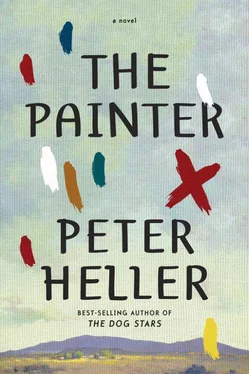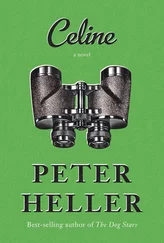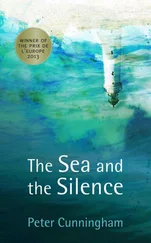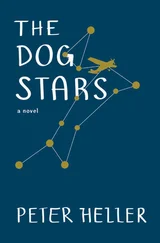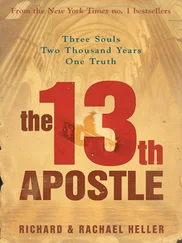Susurant pines. Susssss. Dirt parking lot, half empty on a hot early September weekday afternoon.
I dug a twenty out of the wallet under my seat and slipped the .41 magnum under there alongside it. Don’t know why I was being so paranoid. Was I? Who was going to come after me here? Jason? Grant? Maybe.
Ten Thousand Waves. Cristine and I used to call it Ten Thousand Steps. The treads were stone and wood, the path winding up through the trees. In the evening simple lamps marked the trail. The gate was Japanese, heavy red fir, the top crossbar longer than the one beneath it, like a kanji character. It probably is a kanji character for something concise like Peace and godliness to the one who enters here after a hard journey, hot bath and naked people up ahead. That’s what it always felt like to me anyway, whatever mood I was in when I parked at the bottom. Maybe it was the wind in the long needles of the pines. Maybe it was the rhythm of the path, the steps, the winding contours, the simple wood bench placed beside a lichen covered rock just off the trail. It felt a little like you were climbing the mountain like the wandering poets of old. One of the two books of Pete’s I had tossed in the bag before I left and was becoming my favorite was a slim thing called Two Hundred More Poems from the Chinese , translated by a poet named Kenneth Minton. There was one I loved, made by a guy named Chen Bo in like the eighth century:
On the snowy mountain
even the crows are silent.
My horse shakes his bridle.
Where are the songs
you and I used to sing
in the hillside garden?
You might shed a little of the dusty earth on the way up. Between the grit of everyday life and the cold silence of death are jingling bit rings and singing and love. I loved that. Maybe where Frost got the notion for his own snow and horse poem.
The lodge was weathered dark wood and shoji screens, built in the style of a Japanese lake house. A German girl sold me my robe and key. She had a finely boned face and red rimmed blue eyes. She asked me if I wanted a tour and when I said No thanks, I’d been here before, she seemed crestfallen. She said, “You are an artist?”
I said, “How do you know?”
She smiled. “For one, we get many artists, so the odds are especially good.” She laughed sadly. “For second, you have green paint on your cheek.”
“Ahh. Ach. I always miss a spot.”
“Well,” she said, “let me at least show you the new meditation room.” She wouldn’t take no for an answer, she led me to a glass walled house with tatami mats, told me she was a conceptual artist from New York City reassessing her life. I thought she maybe wanted to be asked out, and when I didn’t oblige she became sullen. She was very formal at the end and looked like she wanted to cry. Maybe she was just having a bad day. I shook her hand and thanked her warmly and realized that I could not save everyone. I could not, it seemed, save anyone, except maybe a small strawberry roan.
The coed pool was clothing optional, a round bath cut into a cedar deck out under the full sun. A few big pines leaned over it and the sparse shade was in high demand, crowded with supine nudes, mostly men. The rest soaked and lay out on the hot fragrant boards heedless of melanoma. I liked the bodies, both men and women. Some reclined in poses of flagrant exhibitionism, others looked as natural as a stump.
I hung up my robe and eased my scarred self into the hot pool. I sighed and leaned my head back and watched a long needled limb brush a scratchless sky. What could be better than this? The Japanese and Chinese poems back at the house shared an appreciation for the simplicity of nature. I thought the collections of ancient Chinese poetry were the most beautiful in my whole new library, and the most accessible. The government official who was steeped in politics and the luxuries of the court renounced it all and rode his horse, or walked, into the mountains. Or maybe he was exiled. He endured swollen river crossings and rain and snow and nights caught out alone without shelter. The relentless and steepening path. He was rewarded with: leaves falling. Blossoms blowing. Cranes and redwings croaking out of the rushes, flapping off down the valley. Mornings of frost and mist coiling on the river. The rustic hut of an old friend, nights of wine and song in the bamboo. Dawn parting, a poem left at the gate. Whenever I read them, I wanted my own life to be like that—simple, wandering the mountains from friend to friend, painting.
Well, many of the great Chinese poets like Wang Wei were painters as well.
“Jim!”
Knocked out of reverie. A toe prodding my shin. Who—?
It was Celia Anson, wife of the renowned gallery owner.
“Prodigal Jim, wow!”
Her husband, Happy Anson, had famously died a couple of years ago and left the store and his entire collection to this twenty-seven year old massage therapist who cared most about White Russians, not the men, the drink. Well, I knew about massage therapists and clearly had nothing against them, until they came after me with a kitchen knife. Celia was naked, of course, and when my eyes came down out of the trees and registered probably surprise, she slid over on the underwater bench and leaned in and kissed me hard somewhere between my cheek and the corner of my mouth and let her ample breasts float like happy ducks against my shoulder and collarbone.
She pushed herself off me, and her left hand slipped into my lap, which, in the buff, and the way things float around, was not just a lap but something more.
“Oh,” she said, a little surprised. “ Sorry . Maybe not!”
She smiled, goofy. I always liked her. I always felt a little sorry for her when I saw her at openings and parties, the way the art society treated her, the snotty razors of nuance she never seemed to understand but always felt, I was sure. She was very pretty, and she always dressed as a stunner, and she was much younger than the patrons, so of course many of the women hated her. But she tried. She was a sunny open soul from Half Moon Bay, a part of the north-central coast I knew well, from a hippy family as she described it, that ran an organic orchard and farm right along the bluffs south of El Granada. She tried hard to be forthright and friendly and she wore her hurt in a bewildered half smile. Where she came from, if you planted seeds and watered them, they grew. If you rubbed and kneaded a cramped muscle it uncramped. Cause and effect. Why, now that she was Happy Anson’s wife, did kindness and offerings of friendship produce wilted plants year after year?
I think there should be tribunals for social cruelty as there are for physical assault. Calculated cuts in the first degree. Snobicide or its reverse. I always talked to her in those crowded rooms, took her on my arm from painting to painting when I could, and discovered she had a sensitivity and intelligence toward the works that might have surprised even her husband. Clearly she had been listening. And she was always so relieved at this attention, she split open like a milkweed and her laughter floated into my eyelashes.
Celia cheated on him of course, after a while. He had one of the best eyes for new work in the country and he was very busy promoting his artists. So not much consoling there. The rumor was that discovering her with one of his painters triggered the stroke that brought on his demise. He managed for more than a year, on a quad cane, and slurring out of one side of his mouth, but he had been a tall, upright, vain man, the kind of gallery owner that talked with a cultivated vaguely British accent he must have learned by replaying Alistair Cooke specials over and over. A real asshole. He didn’t give his new condition time enough to teach him anything like real humility or gratitude, he shot himself with an engraved Italian sixteen gauge worth forty thousand dollars. Messy. Made a Jackson Pollock of his brains on his study wall.
Читать дальше
